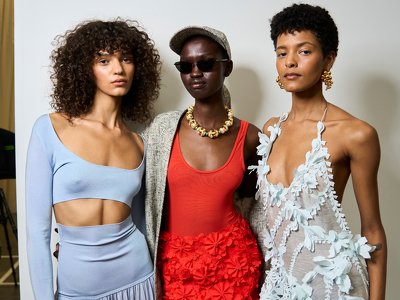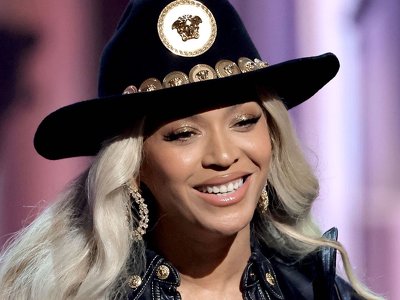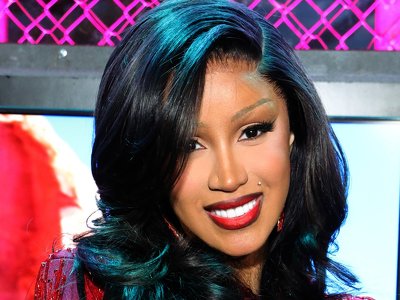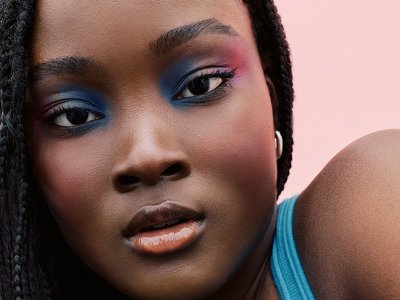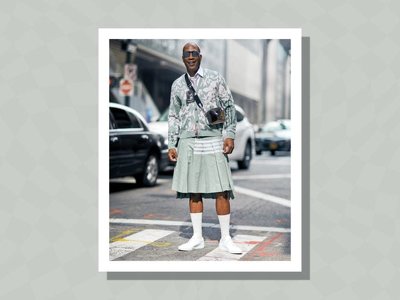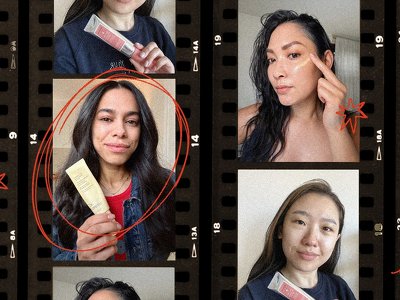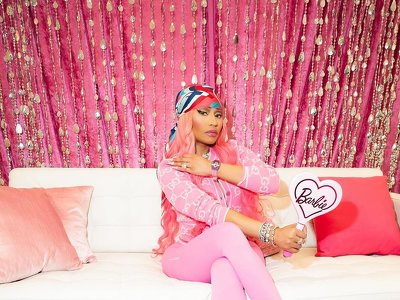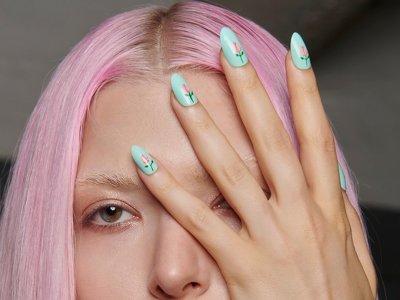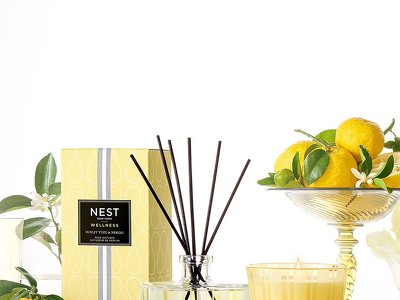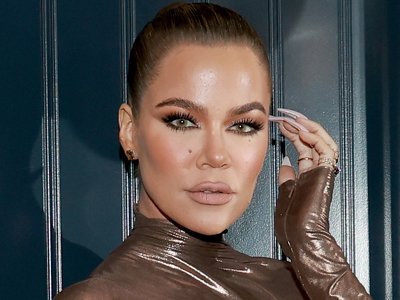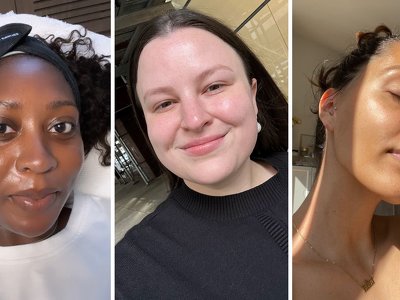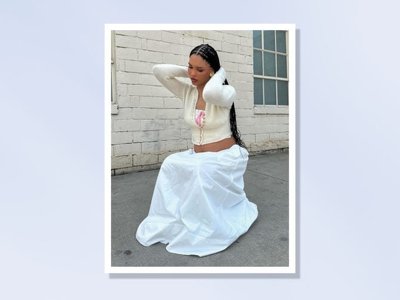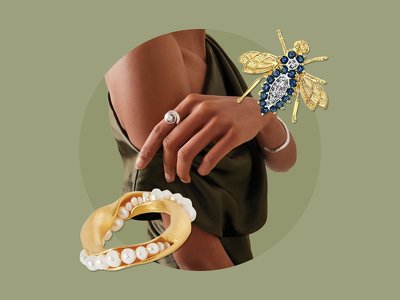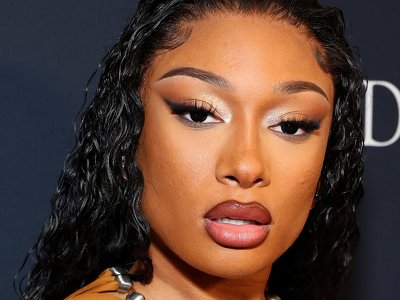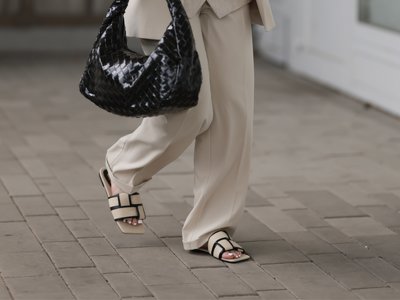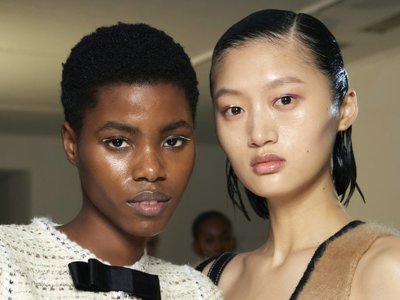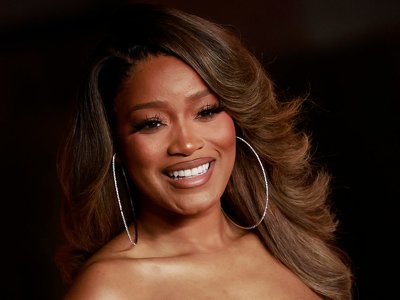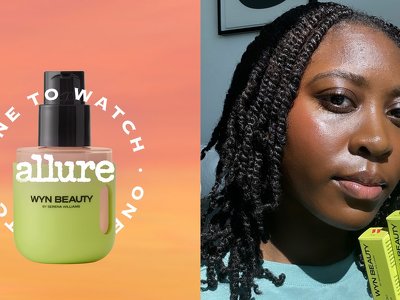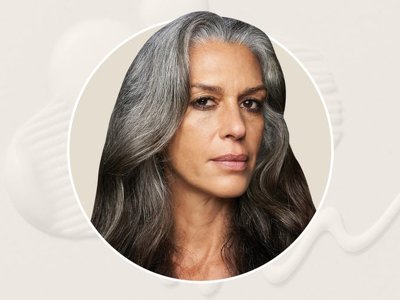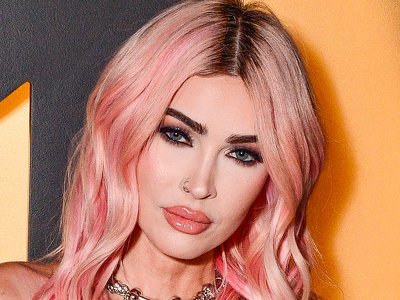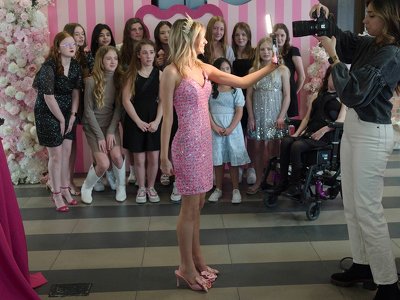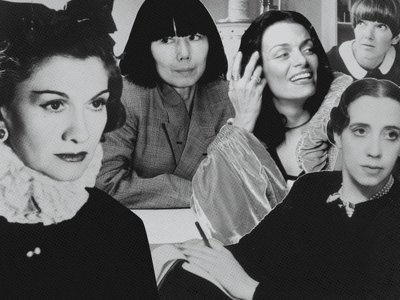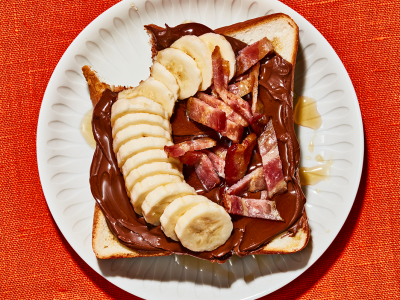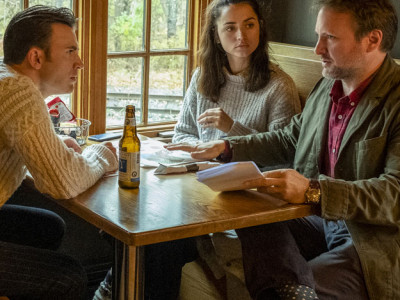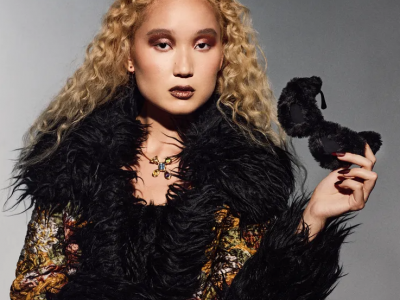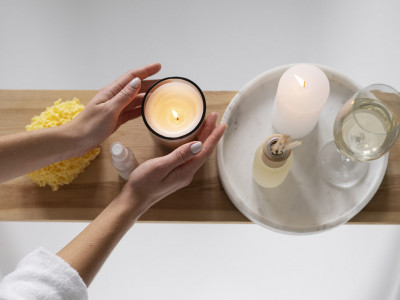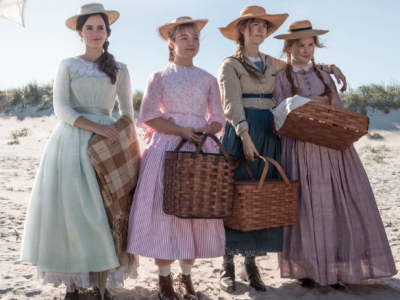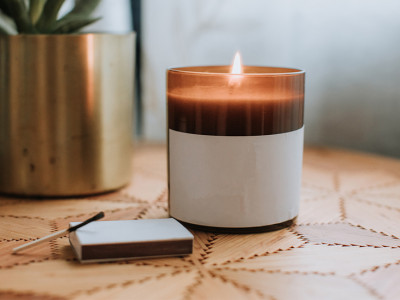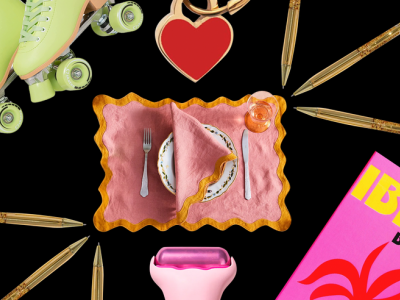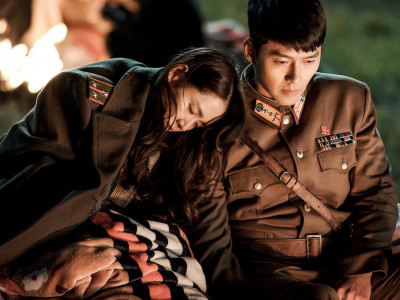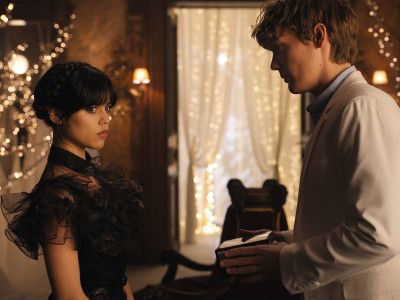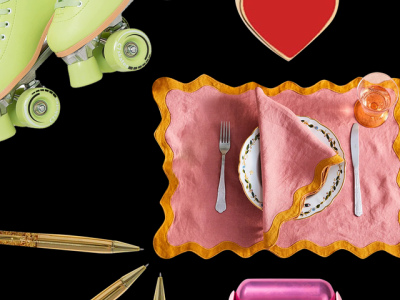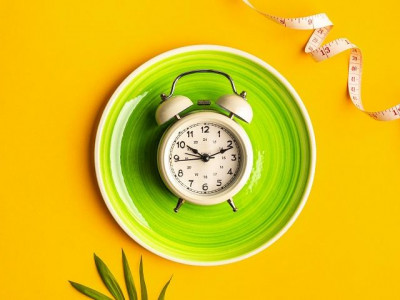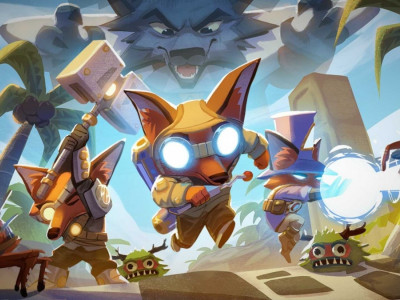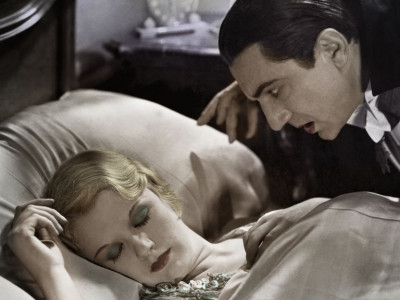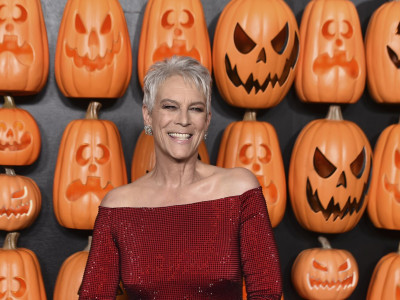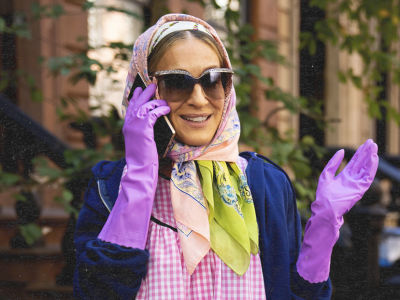How Reading Romance Novels Can Improve All Types of Relationships

Welcome to Doing It, a column where sex educator Varuna Srinivasan explores the deep connections between sex and emotions. This month, they dive deep into the benefits of reading romance. Have a question or story idea for Dr. Srinivasan? Submit it here.
Scrolling through #booktok one recent evening, I came across something rare: a popular trend for couples that actually made me want to participate. The “BookTok Boyfriend Challenge” involves people (mostly women) asking their partners (mostly men) to recreate a scene from their favorite romance novel to see if the moves work IRL. Reenactments include leaning on a door frame, whispering sweet nothings into your partner’s ear, throwing them over your shoulder before running out of the room, and stroking their chin as you stare deep into their eyes.
For some creators, like Hannah, who asked her husband to romantically lean on the doorframe next to her, the result was better than expected. “Feeling flustered 🥵” she wrote on top of the video that ends with her giggling and blushing like a giddy teenager.
But like one commenter said, sometimes, what happens in a book should stay in a book. This video with 1.3 million shows a sequence of failed attempts by other couples trying to act out certain cringey scenes. (I guess some of us don’t want our partners growling in our faces.)
All of this is, at least partially, thanks to a recent surge in romance book sales among Gen Z. To be fair, the genre is already quite popular, accounting for almost 23% of all books sold worldwide. It’s considered one of the biggest and oldest genres, dating back to medieval times (think courtly romances, knights in shining armors, and pastoral romances in ancient Spain.)
But with this surge in popularity has come increased censorship and criticism. Romance authors and the books under the category often face unfair scrutiny about whether their work counts as “real” literature and if they perpetuate false ideologies about romance.
Nancy, a Gen Z romance novel enthusiast who loves the video trends as much as the books, disagrees with people who say these books create unrealistic portrayals of love. “If anything, knowing this love exists in books helps me raise my standard when it comes to men,” says the 24-year-old doctor from Mumbai.
While the romance novel industry remains dominated by white authors and stories about cis characters in heterosexual relationships, it is possible to find diverse representation—and people love reading books that reflect their own experiences. Ava Rani is a South Asian romance novelist who often centers South Asians as the main protagonists in her stories. “I often get feedback from people who have grown up around the idea that romantic love is secondary," she says. “For a long time, 'romance' was largely women marrying for the benefit of men and their lives.” The author has found that her work, and other modern romance novels that show varying stories, allow women to access deeper parts of themselves. “I am grateful to be a part of shifting that narrative,” she adds.
And while there is a common misconception that only women read romance books, a good number of men and non-binary folks also enjoy the genre to help them connect with different parts of themselves. Harsh, a 38-year-old lawyer from India, credits romance novels with helping him be more expressive as a partner. “It has taught me how to be creative with your partner,” he says. “It’s helped me to connect [with them] mentally, emotionally, physically.”
While much has been written about how these spicy novels have helped women feel more empowered in sexual situations, many people I spoke to for this column said they’ve also improved all aspects of their relationships—both romantic and platonic. Here, they share some of their stories.
While there is the outdated idea that women mainly read these books to escape, or fill the void of romance in their lives, many books offer a portal for people to advocate for themselves—and not just in terms of mixing things up in the bedroom.
This genre, like any other, helps readers use the stories of the characters to reimagine a new world for themselves. Jessica O’Reilly, a Toronto-based sexologist, has found that her clients read novels as a way to spark curiosity. “Romance novels can help identify desires you didn’t know you had, including those that are outside of your regular identity or comfort zone,” she emphasizes.
For Tina, a 29-year-old lawyer from Los Angeles, the popular A Court of Thorn and Roses romantic fantasy series was life changing. “The series’ focus on female empowerment and character development taught me to choose better, and really made me realize how bad my ex-boyfriend was,” Tina says. She remembers just how uninterested her then-partner was when she tried to share details of the book. “When he didn’t say anything, I hung up, then called him back and broke up with him,” she recalls. “The book made me realize that my partner should care about what I like and don’t like!”
For Gigi, queer romance stories such as Red, White and Royal Blue, Song of Achilles, Aristotle and Dante Discover the Secrets of the Universe, and The Seven Husbands of Evelyn Hugo inspired her to explore intimacy with different people, regardless of their gender—something she says has been quite liberating.
“I went out and asked people on dates, talked to people to find my person, put myself in situations where I could possibly find the love of my life.” The 26-year-old trader from Toronto also credits the genre to expanding her internal beliefs about love. “The beautiful prose, exploration of romance and conversations about love in these books have influenced the way I talk to my partners, approach dating and have even allowed me to explore the concept of soulmates.”
Specific plot lines and character interactions in romance novels can serve a great template for acting out fantasies of all types, which can be a great way of connecting with a partner.
According to Dr. O’Reilly, “Some folks find that they can use the stories, scenarios and characters from these books to open up about desires, likes, dislikes, boundaries, curiosities and more.” To get started, she recommends couples underline passages and read them together either as a source of inspiration or as a way to start a meaningful conversation about fantasies.
Aura, a PhD candidate from New York, has used conversations she read in certain novels to communicate with her partner. “When you read enough such novels you get a sense of how to say the things you want,” she says. She uses literature as a tool to shrug off the shame or shyness instilled by society when it comes to expressing love and desire. “Now, when I need to say I love you, I say it straight up,” she adds.
Outside of romantic relationships, Pooja has found romance novels to be instrumental in building a sense of empathy. “It taught me to relate to folks even if my lived experiences had nothing in common with them.”
The 27-year-old marketer from NYC has found that some of her favorite books, like Nora Goes Off Script and The Zoya Factor, have exposed her to storylines that weren’t just about romantic love, but other important interpersonal dynamics.
“These books gave me a lens to explore emotional vulnerability and power dynamics, especially when written by women or queer authors,” Pooja says. “Romance novels were also where I first read plots that prioritized consent, communication, and pleasure, something I hadn’t witnessed in my own life before.”
These books often contain plot lines, character traits, and wild scenarios that are far outside the realm of reality , but they can serve as a portal that helps us explore our own desires and wants.
“You can be turned on by dynamics that you wouldn’t embrace in real life—that’s the fun of fantasy,” Dr. O’Reilly says. This is something Neha resonates with. She says books like Fifty Shades of Grey helped her explore the concept of self-pleasure. “It totally changed my understanding of my body! I took cues from the book, for example all the ways in which the characters experimented, and experimented with myself using various objects and positions,” she says, noting that understanding self-pleasure through this manner before she had sex really helped her navigate her growing sexual expressions and desires.
Because romance novels do more than just talk about romance. They help us formulate new ideas around the concept of love, power, and control. As a former serial monogamist, the book All About Love by bell hooks (though not traditionally considered a romance novel) allowed me to challenge some of the ways I’d been using love not as a tool to heal but to escape.
In a world where romance is sold to women as a solution or a commodity to escape loneliness, this quote from her book––“knowing how to be solitary is central to the art of loving… when we can be alone, we can be with others without using them as a means of escape”—helped me realize just how much I equated being coupled with being safe, rather than learning to find a sense of safety within myself.
Whether it's an interesting plot line, relatable character, varying themes of romance outside of cis-het white love, or an exploration into the politics of love—there’s something in a romance novel for everyone. As the genre continues to evolve, romance novels provide not just a portal for escape but also as a mirror, allowing us to learn more about ourselves.
Read more from Doing It:
A Beginner's Guide to BDSM
We Should All Try Having More Mirror Sex
Why Women Like Dirty Talk
Follow Allure on Instagram, TikTok, and Substack, or subscribe to our newsletter to stay up to date on all things beauty.
- Last
- April, 28
-
- April, 27
-
- April, 26
-
-
- April, 25
-
- April, 22
-
-
-
-
- April, 16
-
-
-
-
-
- April, 15
-
-
-
- April, 13
-
-
News by day
5 of July 2025




